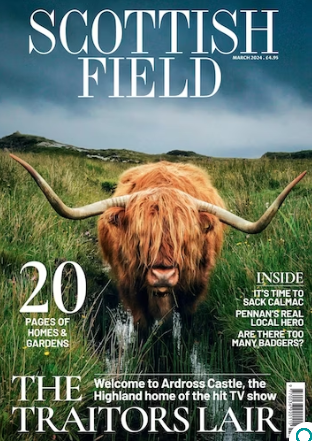Forget flowers and chocolates this Valentine’s Day and instead woo your sweetheart the old-fashioned way.
We present our top ten love poems.
1. Robert Burns: ‘A Red, Red Rose’
Revered by the Russians, adored by the Americans and generally feted around the globe, Robert Burns, ‘The Bard’, is Scotland’s foremost cultural icon. A pioneer of the Romantic movement, he was born in Alloway in 1759 and died in Dumfries just 37 years later. Of his many poems and songs, his love poem, ‘A Red, Red Rose’, is one of his most celebrated and enduring. Its fi rst line, ‘O my Luve’s like a red, red rose’ is instantly recognisable – and this poem naturally tops our list.
2. John Donne: ‘The Sun Rising’
John Donne (1572-1631) was an English metaphysical poet, famed for his vibrant language and inventive use of metaphor. He was very much ahead of his time, and his love poem ‘The Sun Rising’ is a great example of this. It evokes the selfishness of new lovers – totally obsessed with one other. Donne tells the rising sun to leave them alone, to ‘go chide Late school-boys and sour prentices… Call country ants to harvest offices’, because ‘Love, all alike, no season knows nor clime, Nor hours, days, months, which are the rags of time.’
3. Norman MacCaig: ‘A Man In My Position’
Norman MacCaig (1910-96) was affectionately known as the grand old man of Scottish poetry. MacCaig, who was born in Edinburgh, was a primary school teacher for many years. When the Second World War broke out, he refused to fight and was imprisoned for his pacifist views. He went on to become the first Fellow in Creative Writing at the University of Edinburgh and received an OBE and the Queen’s Medal for Poetry. ‘A Man in My Position’ is a love poem, but a dark and discomforting one, written ‘Not by me, but by a man in my position…/This appalling stranger/Who makes windows of my eyes’.
4. Elizabeth Barrett Browning: ‘Sonnet 62’
Elizabeth Barrett Browning (1806-61) was one of the most prominent Victorian poets, popular in both Britain and America. She was married to another poet, Robert Browning, and it was her famous courtship and subsequent relationship with him that influenced her Sonnets from the Portuguese, which includes ‘Sonnet 62’, with its famous opening line, ‘How do I love thee? Let me count the ways.’
5. Ted Hughes: ‘Lovesong’
Ted Hughes (1930-98) was lauded as one of the best poets of his generation, and was poet laureate from 1984 until his death. He is to be given a memorial in Poets’ Corner in Westminster Abbey this year. He was married to Sylvia Plath, the American poet and writer, and is held by some to have been partly responsible for her suicide in 1963. Their relationship was certainly complex, and ‘Lovesong’ is an uncomfortable poem, exploring a selfish and destructive love: ‘Her laughs were an assassin’s attempts/His looks were bullets daggers of revenge’.
6. William Shakespeare: ‘Sonnet 18’
William Shakespeare (1564-1616) is generally regarded as the greatest writer in the English language. His surviving works include 38 plays, a number of long narrative poems and 154 sonnets, of which number 18 is one of the most memorable: ‘Shall I compare thee to a summer’s day?/Thou art more lovely and more temperate:/ Rough winds do shake the darling buds of May,/And summer’s lease hath all too short a date.’ There are many more examples within his plays of excellent love poetry, so choosing one is an impossible task.
7. John Keats: ‘Bright Star’
Along with Byron and Shelley, Keats (1795-1821) is one of the key figures of the Romantic movement. His Odes (such as ‘To Autumn’ and ‘Ode to a Nightingale’) are very popular, although his poems were not greatly received during his lifetime. ‘Bright Star’ – also the name of the 2009 film about his life – is a sonnet written while he was in love with Fanny Brawne: ‘Bright star, would I were steadfast as thou art – /Not in lone splendour hung aloft the night/And watching, with eternal lids apart/ Like nature’s patient, sleepless Eremite’.
8. W H Auden: ‘Lullaby’
Wystan Hugh Auden (1907-73) was born in England and later became an American citizen. He is regarded as one of the greatest writers of the 20th century, his poetry noted for its technical brilliance and its tone, form and content. ‘Lullaby’ is a beautifully structured poem, written about love, one of the central themes of Auden’s work. Like Donne, it focuses on two lovers sleeping: ‘Soul and body have no bounds:/To lovers as they lie upon/Her tolerant enchanted slope/ In their ordinary swoon’.
9. William Topaz McGonagall, ‘Forget-Me-Not’
No list of poets can be complete without William Topaz McGonagall (1825-1902), who unwittingly wrote some of the worst poetry in the English language. Most famous for his depiction of the Tay Bridge disaster, he did write a love poem, a courtly tragedy entitled ‘Forget-Me-Not’, in which a young knight proves his love by crossing a river to pluck a flower for his love, only to be swept to his death: ‘Then she wrung her hands in wild despair/ Until her cries did rend the air/And she cried ‘Edwin, dear, hard is our lot/But I’ll name this flower Forget-menot.’ It’s bad, yes, but we’ve read worse.
10. Emily Dickinson: ‘You Left Me’
During her lifetime (1830-86), only a dozen or so of Emily Dickinson’s poems were published and these were altered significantly to conform to the style of the day. She is now considered a major American poet. Most of her work deals with mortality, and although ‘You Left Me’ is no exception, it can also certainly be called a love poem: ‘You left me, sweet, two legacies, –/A legacy of love/A Heavenly Father would content/Had He the offer of/You left me boundaries of pain/Capacious as the sea/Between eternity and time/Your consciousness and me.’
TAGS

